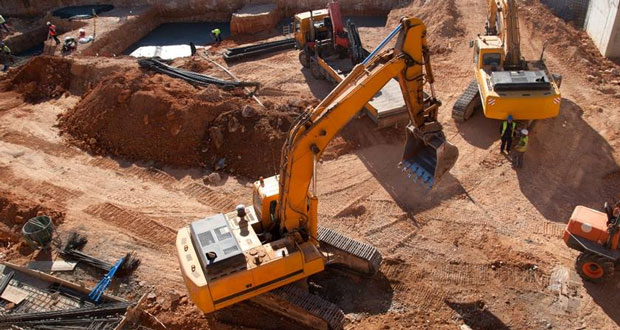The Supply Chain Sustainability School (SCSS) is leading the way for the UK’s built environment to drastically reduce onsite emissions to air generated from plant and equipment which are harmful to human health and the planet.
The Plant Commitment Charter was developed by the Supply Chain Sustainability School’s Plant Group to encapsulate and communicate this approach. Each organisation signatory pledges to work toward five commitments, including: minimum standards in procurement, engagement, awareness raising & education, measurement & reporting, and innovation. The result: they contribute to a cleaner working environment.
Kier and Cheetham Hill Construction are the latest signatories to the Plant Commitment Charter. They join 19 other organisations publicly dedicated to actively reducing their emissions from the plant and equipment they buy, hire and use.
Jade Hunt, Group Environment Manager, Kier,said: “Kier have been active for a long time in reducing the impacts of its business, across all sustainability issues. Signing the School’s Plant Commitment Charter is an outward confirmation of our determined intent, and we want our suppliers and subcontractors to match our ambition.”
Howard Chamberlain, Managing Director and Owner, Cheetham Hill Construction, said: “CHC has signed the School’s Plant Commitment Charter as a clear statement that we take the impacts of our business seriously, taking action to reduce them where possible, as far as possible.”
Signatories to the Charter come from across the value chain and commit to improving air quality and reducing greenhouse emissions and any negative impact caused from their construction plant and equipment (CPE). Direct action on reducing tailpipe emissions can only lead to better local air quality for workers and neighbours, resulting in less impact on the global climate.
Chris Matthew, Strategic Manager, Flannery Plant Hire,said: “Flannery signed the Charter in June 2020, the first to do so, because we saw value in making a public declaration of our strategy to reduce emissions across our fleet and the service we provide to our clients. We are glad to see others joining the same declaration.”
Lara Young, Group Climate Change Director, Costain, said: “Costain were one of the first signatories of the Plant Commitment Charter in August 2020. As an early adopter of low emission plant and having introduced several Groupwide low emission plant standards since 2017, joining the Charter was an evident next step in our journey to net zero. Tackling one of our greatest whole life cycle emissions sources and providing a clear signal to our clients, supply chain partners and Plant OEMs to know of the importance we place on taking tangible action, reducing emissions from plant and machinery. I am delighted that more organisations are following suit.”
Signing the Plant Commitment Charter is free and voluntary.
“Customer engagement” has become a buzzword in the facilities management sector. Typically, it’s talked about as something radical and transformative – which can make it sound expensive, intimidating and overwhelming.
While customer engagement can be transformative for service providers, it isn’t out of reach. It’s the surprisingly simple secret ingredient in your recipe for standing out, streamlining operations and satisfying everyone involved.
Localz has produced a free eBook explaining how you can make the last mile, and the entire day of service, awesome.
To download the eBook click here.





